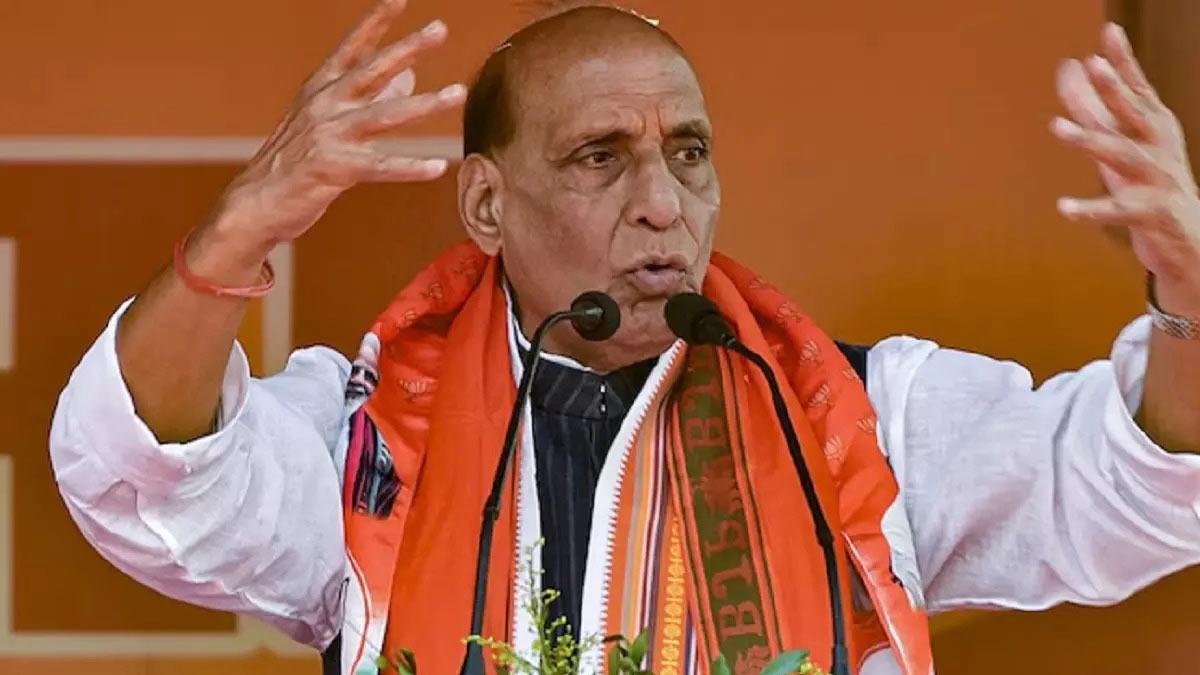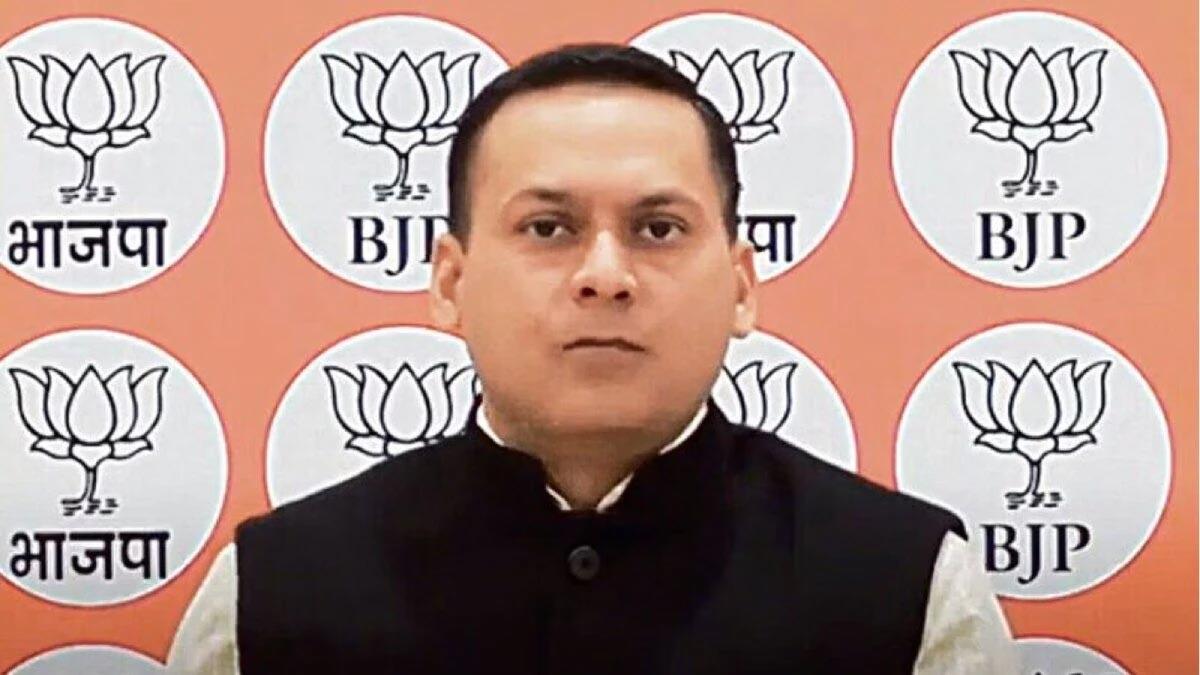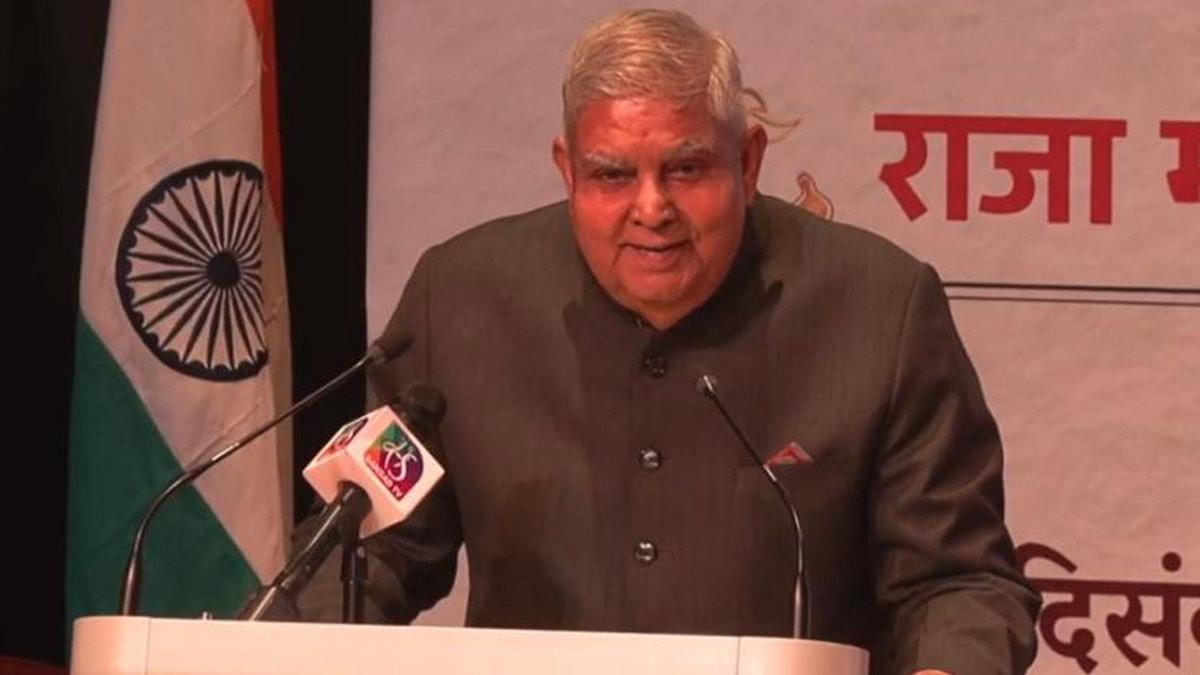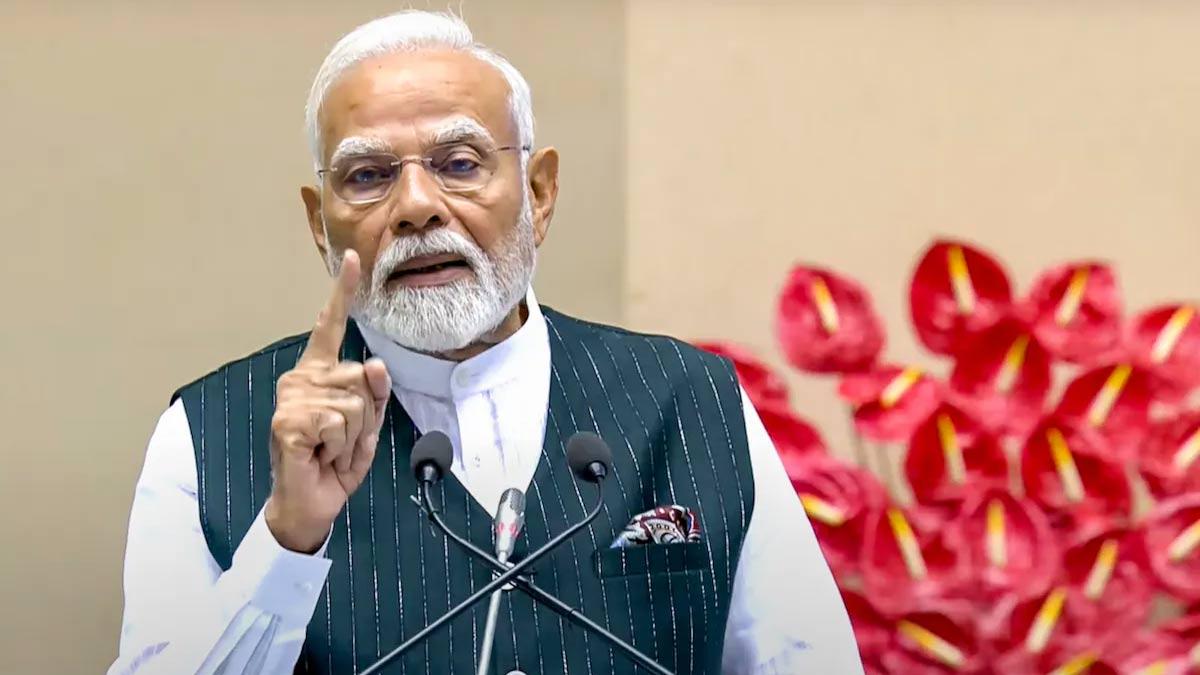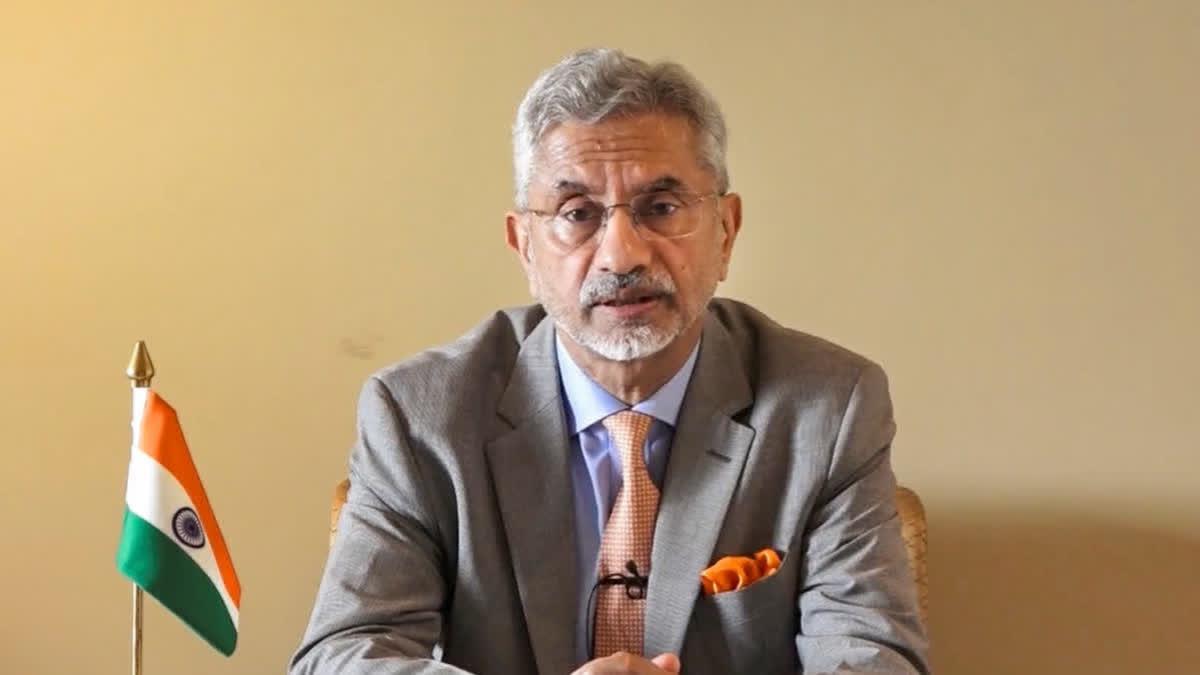Indian Defence Minister Rajnath Singh said on Thursday that broad consensus achieved by India and China to resolve their differences in certain areas along the Line of Actual Control is proof that continuous dialogue brings solutions.
Speaking at the Chanakya Defence Dialogue in New Delhi, Singh said that the two countries have been involved in talks at diplomatic and military levels and broad consensus has been achieved to restore the ground situation based on principles of equal and mutual security.
"This is the power of engaging in continuous dialogue," he said.
He made the comments at a time when Prime Minister Narendra Modi and Chinese President Xi Jinping held bilateral talks in Russia on Wednesday for the first time since 2019.
Relations between India and China touched a low in 2020 during the military clash in Ladakh's Galwan due to Beijing's "unilateral" actions of violating the Line of Actual Control, the de-facto boundary between the two countries.
PM Modi and Xi Jinping met on the side lines of the BRICS Summit in Kazan.
This comes after India and China are able to patrol an agreement successfully patrolling along the Line of Actual Control, which marked the onset of turmoils between the two for the last few years.
Speaking on the subject of 'India's Vision for Development & Security', Singh said, 'Development' and 'security' are often seen as two different planes. But in reality, they are vastly intertwined & mutually reinforcing.
"Historically, the study of key factors for economic development, including land, labour, capital and entrepreneurship, have been centre-stage in economic analysis. The impact of defence and security has traditionally been under-explored. This may be because security is often regarded as a necessary but non-economic factor. Defence spending, military infrastructure and national security can greatly influence growth and resource allocation even in non-war periods or in peacetime," he said.
Underlining that security happens to form a massive chunk of any country's budget, and it very well contributes to the economic level with employment, technological upgradation, and construction of infrastructure, Rajnath Singh further reasserted that the Government headed by Prime Minister Narendra Modi is committed to filling the vacuum between 'development' and 'security', asserting that development can only emerge if national security is taken care of.
Enumerating the steps being taken by the Government, Singh said that the vision of border area development is based on building a sound security apparatus and socio-economic development of the regions.
This, according to him, stimulates economic growth.
These weapons and equipment are indeed made domestically, Rajnath Singh further said. Which not only makes one strong in terms of security infrastructure, but also generates employment to the people and enhances the expertise thereby developing technology innovation & self-reliance. Domestic production also boosts the generation of income and stimulates economic activities through the supply chain with a ripple effect in creating benefit to the entire economy. Ideas in the name of security often make very potent catalysts for broader national development, he said.
According to Singh, 'Aatmanirbharta' of the Government has made the defence sector directly as part and parcel of the development of the country.
"If defence has been perceived as an integral part of development and studied appropriately in the previous ages, India would have become independent in the defence sector much earlier than now. Long-term dependency on imports is due to the lack of coordinated thinking between defence and development," he added. As a result, while our defense industry lost many critically important growth and innovation opportunities, much of our defense budget leaked into other economies while undermining our own capacity to better defend ourselves. "That's why it is important to address this disconnect toward building a robust domestic defense industry that can contribute toward national security and economic independence," he said.
However, Rajnath Singh quickly clarified that self-reliance does not mean going out of the global family; it means the commitment of the country to work for an equitable and just global order.
He once again reiterated India's commitment to closely working with all nations to help build a just and equitable international system.
"Our journey towards self-reliance is no journey towards isolation.". But instead of signifying an era of the self, it's going to be a great new chapter of cooperation and partnership with the rest of the world. We are convinced that we shall be better equipped to join international efforts, share our skills, and participate meaningfully in exchanges that will benefit all when we achieve self-reliance. Together, we can build a stronger and more interconnected world that treats the sovereignty and aspirations of all nations on equal terms," Singh said.
What was the Galwan clash?
Indian and Chinese forces clashed for six hours along a Ladakh ridge in the spiky mountains on June 15, 2020, fighting hand-to-hand and using makeshift weapons like stones, batons, and iron rods.
The faceoff happened in the dead of night with subzero temperature when the soldiers slipped off or got pushed from the ridges leading to the deaths.
In this confrontation, Twenty Indian soldiers died, though China claims only four casualties though the reports say Chinese casualties are greater; as some of the soldiers drowned in the Galwan River's choppy water.
Read also| Congress Should Transfer Their Office and Flag to SP, Pramod Krishnam
Read also| Giriraj Singh Accuses Tejashwi Yadav of Supporting Infiltrators and Rohingyas

